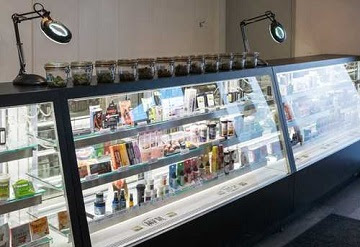Final Regulations for cannabis businesses were released earlier this year, but there may be more changes coming. Below are some of the bills being watched by the California cannabis industry this legislative session.
AB 1530 reverses the policy adopted by the BCC allowing cannabis deliveries anywhere in the state regardless of local bans. This bill states that a ‘local jurisdiction may adopt an ordinance or resolution that permits, restricts, limits, or bans the delivery of cannabis or cannabis products to a location within its jurisdictional boundaries.’ PAN supports statewide delivery as an option for patients. The bill would also establish a grant program to expand enforcement against unlicensed cannabis businesses and increase consumer education.
PAN is closely following these tax bills:
SB 34 is the re-filed ‘Compassionate Care’ bill that was vetoed by then Gov. Brown last year. This amended version now called ‘Cannabis Donations’ exempts from the use tax cannabis products expressly intended for compassion programs. Strict track and trace measures will apply.
AB 286 is the ‘Taxation: cannabis’ bill and is currently in the Assembly Revenue & Taxation Committee. This bill is intended to offer temporary relief to cannabis businesses by lowering the excise tax from 15 to 11%, and eliminating the cultivation tax until July 1, 2022. The bill also requires reports from the various departments involved on licensing and tax revenue numbers to measure the bill’s success. The legislature wants to see if lowing taxes gets more people to apply for licenses and gets more customers to the regulated shops.
AB 37, the ‘Personal income taxes: deductions: business expenses: commercial cannabis activity’ bill would help offset the federal 280E tax burden by allowing business deductions in California’s personal income tax for state-licensed cannabis businesses. The bill’s authors address tax equity for licensed cannabis businesses.
Other bills that would help cannabis businesses:
AB 1420 prohibits state regulators from raising application and licensing fees past what is already established. The nice part of this bill is that it lists every fee for every license type together in one section.
SB 51 allows for the establishment of “cannabis limited charter banks and credit unions” to serve the cannabis industry.
AB 1525 codifies that financial institutions such as banks and credit unions that work with licensed cannabis businesses are not in violation of state law.
SB 67 extends temporary business licenses until the end of 2019, for those that have already submitted Annual License Applications.
AB 953 allows licensees to pay state and local taxes with a cryptocurrency method called “stablecoin.”
Some proposed inventory, track and trace changes:
AB 1288 requires additional sales data be uploaded into California’s track-and-trace system, specifically the date of every sale and whether each sale was conducted at a shop or via delivery.
SB 475 allows the sharing of free-trade samples of cannabis products between licensees exempt of the cultivation tax.
To look up and track any of these bills, visit https://leginfo.legislature.ca.gov/faces/billNavClient.xhtml
and type in the bill number.
To find your California representatives, visit
Constituents can contact their representatives by phone or by using the contact page on the representative’s website to SUPPORT or OPPOSE any of these bills.
Contact PAN if you have any questions about contacting your elected representatives. Your voice matters.















